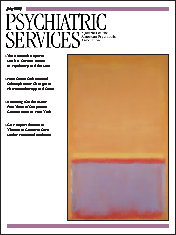William I. Gardner, Ph.D., provides an excellent theoretical and practical guide for clinicians facing the significant challenge of helping people with intellectual disabilities and aggressive behavior. His approach is essentially a "whole person" one in which the complexity of human behavior is recognized and addressed. His multimodal contextual case formulation (MCC) model allows for an examination of the ways in which a wide array of factors transacts to produce a specific aggressive response. Review of the literature is focused primarily on investigations of aggressive and other disruptive behaviors among individuals with intellectual disabilities. However, support for the MCC model is also cited in the larger context of the study of human aggression. Despite the focus on people with intellectual disabilities, many of the key points made are equally applicable to persons without disabilities who present for mental health care with aggression as a core clinical feature.
Aggression and Other Disruptive Behavioral Challenges: Biomedical and Psychosocial Assessment and Treatment has 11 chapters and is well organized. Concepts are clearly defined. There is a series of helpful case illustrations and diagrams depicting the ways in which various influences on behavior interact to produce aggressive behavior, according to the MCC model. The first three chapters provide an overview of the research on aggression. In chapters 4 through 10, assessment and treatment are described, and critical concepts from the proposed model are elucidated. The chapter on sexual aggression, written by Dorothy Griffiths, is an important contribution, addressing some of the unique concerns related to clinical care of individuals with intellectual disabilities and sexual disorders. In chapter 9, Betsy Benson describes the importance of teaching new skills, a departure from the traditional focus on decelerating aggression. The emphasis here is on developing strategies to help individuals experience ongoing success in responding to stress in more adaptive ways. In general, people with intellectual disabilities and aggression are frequently found to have significant social skill deficits. The book emphasizes the importance of recognizing aggression as a learned response that occurs in a specific psychosocial context.
A key point made by the authors of the various chapters is that individuals with intellectual disabilities and aggressive behavior come to clinical attention for reasons that are often quite different from those identified in a typical psychiatric evaluation. Variables that can lower the threshold for an aggressive response may be more common in this population, including cognitive challenges that limit capacities for problem solving and the development of effective coping strategies; biomedical concerns, such as hard-wiring problems in the brain that are associated with irritability, impulsivity, hyperactivity, overarousal, and difficulty modulating incoming stimuli; genetic syndromes associated with mental retardation and increased risk of psychiatric disorder and unusual or abnormal temperaments; poor communication; and a frequent history of challenging environments and experiences that promote or strengthen aggressive responses. Gardner and the other authors label these areas of greater challenge as "vulnerabilities." They argue that a complex model is required to understand the multifactorial origins of aggression, especially for individuals with intellectual disabilities.
The book is likely to have appeal and utility for practitioners with various backgrounds and degrees. Clinical social workers will approve of the focus on the "person in their situation." Psychologists trained in applied behavioral analysis will recognize that Aggression and Other Disruptive Behavioral Challenges builds on key elements from a functional analysis perspective, including more recent writings addressing the role of remote antecedent conditions in the pathogenesis of aggression. Psychiatrists, nurses, and other medical professionals will note that critical attention is paid to physical and pathologic biochemical states that may contribute to areas of vulnerability. This book recognizes that many people with intellectual disabilities and aggressive behavior suffer from physical distress due to medication side effects, constipation, infections, and other problems that would not usually be seen as "causing" aggression. According to the MCC model, "instigating" variables lower the threshold whereby aggression will occur when the individual is faced with a stressful event or situation. The ways in which these instigating variables can lower the threshold for aggression is also affected by the individual's unique learning history, the power of the provoking event, and the individual's unique biological makeup or temperament.
The assessment and treatment of aggressive behavior among persons with intellectual disabilities is highly challenging. Answers to complex questions raised will require the convergence of expertise from a variety of disciplines that have traditionally functioned separately. The need is great, and it seems likely that effective treatment for people with intellectual disabilities and serious recurrent aggressive behavior will come only with the use of a multifactorial, multimodal approach such as the MCC model proposed by Gardner and colleagues.

